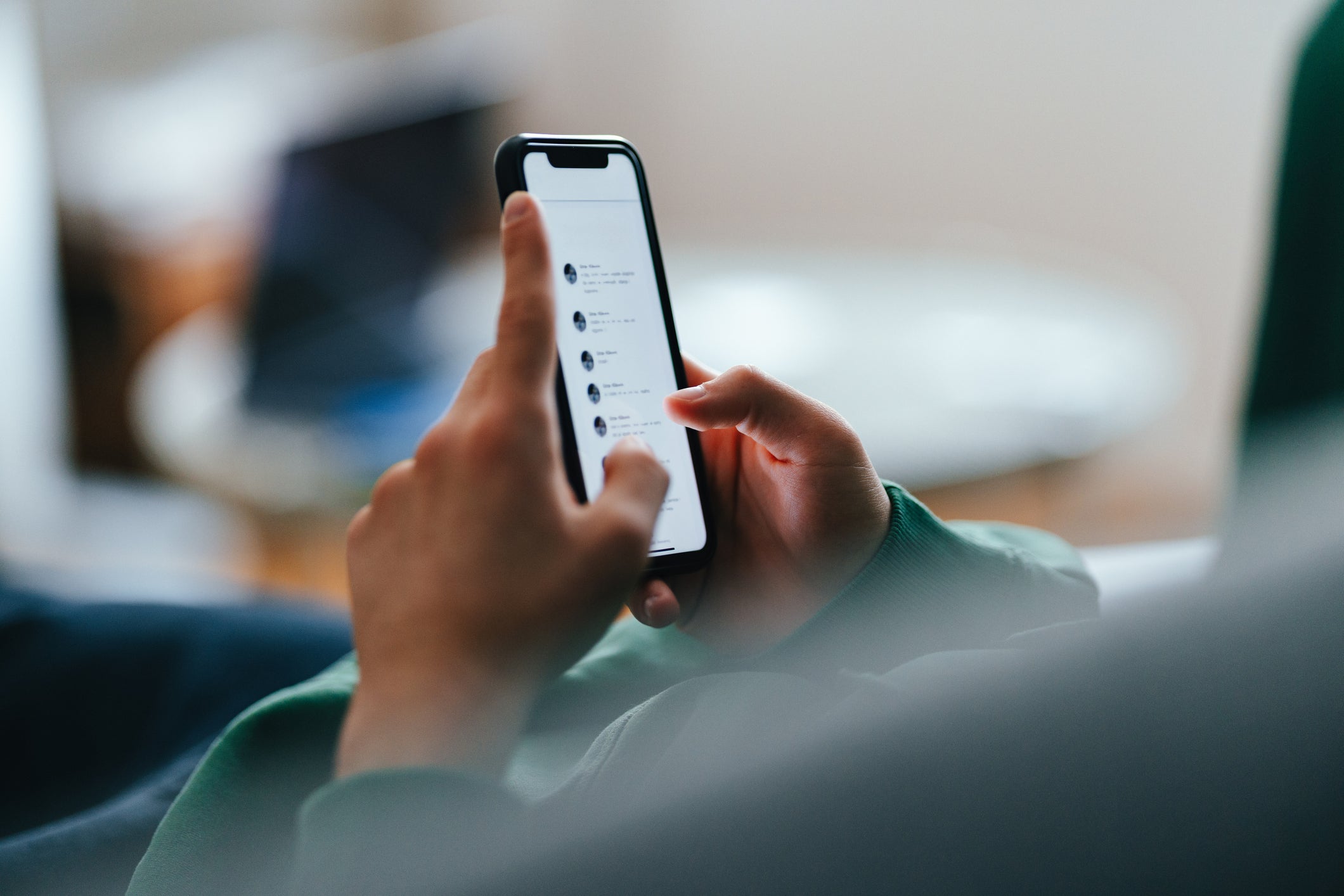The Independent's journalism is supported by our readers. When you purchase through links on our site, we may earn commission.
The harsh truth is too many people are digitally under-parenting their children
Parenting author Lorraine Candy sat down with her 18-year-old to see what he would make of Adolescence and why the adults in the room need to take some responsibility for the online world they are living in


We rarely watch telly with our teenage son, it’s no longer a family priority for him; he’s got more exciting places to be (his room). But I made my 18-year-old sit through Netflix’s Adolescence with me because I was panicking. Like all the mums on my WhatsApp groups, we’ve all been bombarded by news of our “toxic boys” all week.
Have any of us dropped the ball, we wondered? Were we guilty of this new “digital under-parenting” trend? (Giving kids unlimited and unsupervised access to devices and social media.)
As my boy and I watched this ground-breaking sadfest, he was, like most teen males, reluctant to discuss the themes with an adult he’s related to. After a few “I dunnos” it became clear that for him, along with other teens I chatted to, Adolescence is not the panic-inducing, fear-mongering state of play drama we’re having sleepless nights about as parents.
For him, it was just a slow-moving show about one boy’s over-attachment to the dark side of the internet. It neither surprised nor shocked him. He seemed resigned to the fact that, yes, this may happen in real life, and he said he felt a little hopeless in the face of that. What could he do, he asked not unreasonably.
“It’s just much bigger than us,” he said after we concluded that maybe the only way to stop the rise of this incel culture is to maybe look to schools to reshape how they work for and with confused young boys drawn to it.
We need to help today’s vulnerable boys feel safer in the place they spend most of their teenage time: the classroom. For many parents, one of the most poignant and heartbreaking scenes was in the school where the detective’s son, who has been avoiding school, is shown being bullied in the canteen. No one does anything. The message here is this: if the adults in charge aren’t tackling in-person bullying happening in plain sight, then how can we expect them to tackle the ‘invisible’ bullying which happens online?
We know that this kind of behaviour is not rare, and teachers today struggle to be all things to all pupils (as we saw in the show with the teacher trying to help the murdered girl’s best friend). Perhaps making changes offline first should be the priority.
_n_S1_E3_00_25_31_20.jpeg)
As someone who writes about parenting teenagers for a career, I think we need to rebuild the infrastructure of childhood itself to support boys and girls better. But that, as my son said, is bigger than us.
A cultural moment like Adolescence is to be applauded but it can also trigger an unhelpful catastrophising kind of panic. We certainly need to face the situation we are in with big tech and their evil algorithms, but I disagree with ideas like a blanket smartphone and screen ban. Adolescence hasn’t changed my mind on that.
I’d rather we encourage critical thinking in teens, teach them how to talk about and emotionally process anything frightening they see and show them how to use smartphones safely. I do know that our teens will see, and possibly do, upsetting things because adolescence is a challenging time for every generation.

One thing we can do is make sure we are not digitally under-parenting. Every expert on the frontline of teenage mental health agrees that screen time must be monitored. I won’t allow screens in bedrooms at night, a decision which almost ruined my relationship with my eldest child.
But I had to risk that because you can’t be conflict-averse if you’re parenting a teen. Watching Adolescence with my son made us both sad, but I won’t let it make me feel helpless. It was a reminder to be more vigilant, and focused on where we can go right with our children even though none of us can ever truly know what our teens are getting up to in their daily life, phone or no phone.
Lorraine Candy is co-presenter of Postcards From Midlife and has written a number of books about parenting and midlife
Join our commenting forum
Join thought-provoking conversations, follow other Independent readers and see their replies
Comments

Bookmark popover
Removed from bookmarks